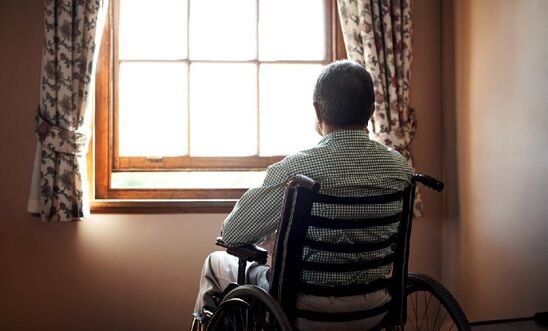
Press releases
Amnesty urges councils in England not to transfer COVID-19 patients into care homes

Amnesty writes to over 300 councils in England urging them to not to transfer COVID-19 patients into care homes without a guarantee that it is safe to do so
‘The mass discharge of Covid-19 infected patients to care homes was one of the most regrettable mistakes made in the handling of the first wave in the UK. To repeat the error now is not only reckless, but ruthless’ – Kate Allen
Amnesty International has written to every Council in England, urging them not to transfer COVID-19 patients into care homes, as the Government has requested, unless an independent assessment is carried out to guarantee safety for residents and staff.
The human rights organisation raised concerns after seeing a leaked letter from local authorities to care homes in England asking how many beds they can provide in their facilities for COVID-19 patients.
The letter was sent after the Department of Health and Social Care wrote to all local authorities in England telling them they needed to ‘identify designated accommodation’ and notify the Care Quality Commission.
Amnesty has written to over 300 councils in England urging them to comply with the request only if they can be sure there would be no risk to other residents or staff.
Kate Allen, Amnesty International UK Director, said:
“The mass discharge of COVID-19 infected patients to care homes was one of the most regrettable mistakes made in the handling of the first wave in the UK. To repeat the error now without guarantees that it would be safe to do so would be is not only reckless, but ruthless.
“Care homes house some of the most vulnerable people in the UK and they must not be used as a dumping ground for COVID-19 patients.
“We are saying to Councils that they should not identify care homes as a place to transfer COVID-19 patients unless they are sure there would be no risk to other residents and staff. At the moment there does not appear to be any mechanism in place to provide that assurance and establish clear lines of responsibility and accountability if things go wrong.
“This underscores the urgent need for a full independent public inquiry with an immediate initial phase to prevent a wholesale repeat of mistakes made previously in the pandemic. To make these errors once is hugely regrettable, to do so again would be culpable.”
The human rights organisation is concerned that the same mistakes and lack of accountability are being repeated from early on in the pandemic when procedures for assessing infection prevention and control mechanisms were inadequate. For example, the Care Quality Commission neither objected to the discharge of infected or possibly infected patients into care homes, nor ensured that the infection prevention and control measures necessary under the circumstances were in place in cares homes that received infected patients.
Amnesty is calling for mechanisms to be put in place which ensure that care homes which are asked to accept infected patients have been assessed by an independent and professional body which would guarantee they have the necessary infrastructure, staff, equipment, training, and systems in place to ensure effective protection from the virus for residents and staff, and adequate care for the incoming infected patients.